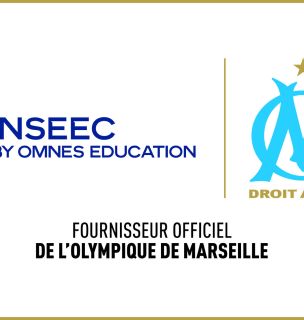The MSc 2 Health Care Facilities Manager course
“In the field of health care management, there is a very high demand for staff with technical and operational skills but also able to respond to recent changes in the health care and care of the elderly sectors. We must take the measure of the technological revolutions but also of the changes in the public’s expectations.It isimportant to train professionals who will be able to respond to the new situation marked by the lengthening of life and the spectacular increase in chronic diseases.
Serge Guérin, directeur de programme campus de Paris

A 1 or 2 year degree to become an expert in health
This program prepares students for management positions in health and human services institutions.
3-Year bachelor degree holders can apply for MSc 1st year, while holders of a 4-year Bachelor degree or higher can apply directly for MSc 2nd year.
The programme is aimed at two types of audience:
- Students with a degree in economics, management, social law, medicine, pharmacy, etc.
- Professionals in the health sector (health and social sector managers, health managers, heads of educational services, etc.) who wish to validate their experience and qualifications with a Level 1 diploma in order to qualify for management positions. For these professionals, the seminars can take place over 2 days only, on Fridays and Saturdays. Each participant must carry out an expertise mission within the framework of his or her own institution or another structure.
Nurses, midwives and other paramedical professions, specialised educators, social workers and medical representatives can prepare for the first year of the Master of Science in Health Care Facilities Management (Bac+4) and then enter the second year (Bac+5). The Health Establishment Director training course is part of the HR & Health division of INSEEC.
Program objective
The program prepares learners for managerial positions in healthcare or human services establishments.
services. This specialization in the healthcare field opens the door to management positions in health, social or medico-social facilities, whether public or private, voluntary or dependent on the local authority.
public or private, associative or local authority structures.
The objectives in terms of skills are to be able to:
- Design and support the strategy of a healthcare establishment;
- Organize and manage the development of a healthcare facility;
- Steer the accounting and financial management of a healthcare facility;
- Design and manage a healthcare facility’s quality and risk management policy;
- Manage teams and support HR projects.
All the skills acquired are listed at the end of the document.
Would you like to know more about the MSc Healthcare Facility Manager programme? Sign up for an Open House!
The Courses
The courses listed below are examples only and may vary slightly depending on the campus. The content of the courses is adapted each year to market developments and is updated before the start of each new school year.
PROFESSIONAL TOOLS & METHODS
CV writing, recruitment interview techniques for internships, professional project management, team management and leading meetings. Negotiation techniques, transactional analysis and NLP, speaking and stage fright management, management and leadership techniques. Skills assessment, coaching, resume digitization and national and international job search techniques, preparation for the applied research dissertation.
1st year courses
PROFESSIONAL METHODS AND PRACTICES – 1ST YEAR
PROFESSIONAL TOOLS & METHODS
CV writing, recruitment interview techniques for internships, professional project management, team management and leading meetings. Negotiation techniques, transactional analysis and NLP, speaking and stage fright management, management and leadership techniques. Skills assessment, coaching, resume digitization and national and international job search techniques, preparation for the applied research dissertation.
BUSINESS ENGLISH
Refine your English comprehension and communication skills in a wider context than just business English. Students are required to take the TOEIC test, depending on their host campus.
CORPORATE STRATEGY AND BUSINESS PLAN
The aim of this module is to teach you how to draw up a business plan, i.e. to design a costed project for the creation or development of a company. Several stages are covered: feasibility study, market targeting, opportunities and risks, strengths and weaknesses, communication, financing plan and profitability.
DECISION-SUPPORT SOFTWARE AND TOOLS
The aim of this module is to enhance students’ IT skills to meet the needs of companies in terms of budgeting, sales, project management, personnel management and communication: Excel, Word, Powerpoint, teamwork tools, business software. Its aim is to enable you to work effectively with office automation tools,
identify and quickly correct errors, customize existing tools or create your own.
BUDGET MANAGEMENT AND DASHBOARDS
The aim is to acquire key skills in budget management and reporting. Particular emphasis will be placed on budget architecture, with the implementation of summary documents, project management control and its link with budget management, and the creation and management of dashboards.
WORK EXPERIENCE
The Professional Experience Report highlights the experience and know-how acquired during the internship, presenting the practical aspects and processes implemented.
SPECIALIZED COURSES
SOCIAL LAW
Understand the structure of individual and collective labor relations. Understand and apply the reasoning behind labor law and the various legislative, regulatory and case law developments, by solving case studies.
EMPLOYMENT LAW
Different types of employment contracts. Employer’s prerogatives. Breach of employment contracts. Protected categories, discrimination, equal treatment.
Management & LEADERSHIP
Train professionals capable of leading and managing teams and organizations. Acquire the skills and knowledge to lead and manage people. Develop leadership qualities such as vision, motivation and communication. Adapt to the changing world of work.
SOCIAL POLICY & INNOVATION
Manage human resources effectively and acquire a strategic and operational vision of the HR function. Understand the role and missions of the HR department in leading and supporting corporate change. Definition of HRM. HRM and other corporate functions. The strategic dimension of HRM. Corporate performance and HRM. Structure of the HRM function. HR function professions. HRM innovation.
WORK AND ORGANIZATIONAL PSYCHOLOGY
Factors influencing the success of a work team. Adapting to change and professional development: obstacles and psychological resources. Stress management and burn-out. The effects of information and communication technologies on work and organization.
INDIVIDUAL AND COLLECTIVE BEHAVIOR WITHIN THE COMPANY
Focus on negotiation between groups within the company, taking into account social and power ties.
ORGANIZATIONAL SPECIFICITIES AND HUMAN RESOURCES MANAGEMENT
Organizational difficulties in human relations. The organizational system and its components. Major theoretical approaches to the organization. Different types of organization.
RECRUITMENT TECHNIQUES
Candidate selection and integration into the company. The place of recruitment and EPM in the HR strategy of General Management. Recruitment tests, graphology. Typology of tests most commonly used by recruiters: logic and comprehension tests, personality tests, work situation tests.
REMUNERATION POLICY AND PAYSLIP
Components of remuneration. Understanding the logic of a payslip. Producing a pay slip. Topics related to employee and employer contributions for social protection and unemployment. Supplementary schemes.
DIGITALIZING HR
Presentation of HRIS (Human Resources Management Information System) type tools, their objectives and use. Description of data issues and awareness of the RGPD framework.
ANALYSIS OF USER AND FAMILY SATISFACTION
Notion of satisfaction and value perceived by the customer. Identify the variables involved in user satisfaction in a facility or personal assistance service (depending on the type of service – adult, child, short or long stay, etc.). Identification of family satisfaction variables in a facility or personal assistance service (depending on the type of service – adult, child, short or long stay, etc.). Tools for analyzing satisfaction (questionnaire, café rencontre, etc.). Presentation of Social Life Councils and their role in customer satisfaction.
EXTERNAL COMMUNICATION FOR HEALTHCARE FACILITIES
Presentation of the different types of establishments (health, medical-social and social), the different statuses (public, associative and private) and the different publics served. External communication tools used (corporate brochure, website, Facebook page, Linkedin, etc.) and content analysis. Advantages and disadvantages of social networks. Weight of different networks according to type of establishment.
MASTERCLASS
DES masterclasses are held throughout the year to showcase the latest developments and trends in recruitment, retention, team building and more.
HEALTH LAW
Knowledge of users’ rights in healthcare establishments and public authorities’ priorities in this area (French law of March 4, 2002). Definition, measurement and analysis of respect for users’ rights
rights in healthcare establishments. Respond appropriately to complaints and claims made by patients.
APPLIED RESEARCH PAPER
The applied research dissertation aims to develop analytical and reflective skills around a managerial issue. It is an opportunity to demonstrate rigor in analyzing a problem or managerial issue and formulating operational recommendations. The research dissertation is the reflection of the research work, and is structured around three main stages: the literature review, the qualitative and/or quantitative study and its results, and the managerial recommendations.
DEVELOPMENT MANAGEMENT
ORGANIZATIONAL SPECIFICITIES OF HEALTHCARE FACILITIES
Construction and management of schedules and work organization. Time management and task sheet construction. Nature of organizational changes and their implications. Development of approaches, methods and tools related to organizational change.
OVERALL MANAGEMENT OF A MEDICAL-SOCIAL ESTABLISHMENT
Key success factors for opening a medical-social establishment. Typology of medico-social establishments in the field of disability. Drawing up and structuring a provisional budget
of a medical-social establishment. Monthly budget monitoring chart.
RELATIONS WITH SUPERVISORY AUTHORITIES
Mastery of the mapping and specific features of health and medico-social establishments. Understanding of institutional organizations. Place and role of institutional partners.
Mastery of pricing authorities’ areas of competence. Relationships and strategic issues with the State and local authorities.
PATIENT-CAREGIVER EXPERIENCE AND MARKETING
Mastery of the mapping and specific features of health and medico-social establishments. Understanding of institutional organizations. Place and role of institutional partners.
Mastery of pricing authorities’ areas of competence. Relationships and strategic issues with the State and local authorities.
2nd year courses
HEALTHCARE FACILITY STRATEGY – 2ND YEAR
HEALTH AND AGEING ECONOMICS
Analyze healthcare systems and the growth of healthcare spending. Understanding the different ways of regulating healthcare spending. Comparison with experiences abroad. Analysis of demographic aging and estimation of its impact on the French economy. Comparison of the French situation with that of other countries. Effects of aging on pensions. Study of the EHPAD market and other personal services.
ETHICS, WELL-BEING AND HUMAN RIGHTS
The management of healthcare facilities must ensure that fundamental ethical principles such as human dignity, autonomy, informed consent, justice and non-maleficence are respected in all aspects of patient care. Patient and resident care must be a top priority. This means creating a safe, respectful and inclusive environment, where individuals feel valued and listened to. They must ensure that patients’ rights are respected, including their right to information, confidentiality, freedom of choice and complaint. It is crucial to educate and train all staff in issues of ethics, good treatment and human rights, so that they can adopt best practices in their interactions with patients. Management must put in place a continuous improvement process to identify areas for improvement in terms of ethics, good treatment and respect for patients’ rights.
HEALTH LAW
Knowledge of users’ rights in healthcare establishments and public authorities’ priorities in this area (French law of March 4, 2002). Definition, measurement and analysis of respect for users’ rights
rights in healthcare establishments. Respond appropriately to complaints and claims made by patients.
APPLIED RESEARCH PAPER
The applied research dissertation aims to develop analytical and reflective skills around a managerial issue. It is an opportunity to demonstrate rigor in analyzing a problem or managerial issue and formulating operational recommendations. The research dissertation is the reflection of the research work, and is structured around three main stages: the literature review, the qualitative and/or quantitative study and its results, and the managerial recommendations.
DEVELOPMENT MANAGEMENT
ORGANIZATIONAL SPECIFICITIES OF HEALTHCARE FACILITIES
Construction and management of schedules and work organization. Time management and task sheet construction. Nature of organizational changes and their implications. Development of approaches, methods and tools related to organizational change.
OVERALL MANAGEMENT OF A MEDICAL-SOCIAL ESTABLISHMENT
Key success factors for opening a medical-social establishment. Typology of medico-social establishments in the field of disability. Drawing up and structuring a provisional budget
of a medical-social establishment. Monthly budget monitoring chart.
RELATIONS WITH SUPERVISORY AUTHORITIES
Mastery of the mapping and specific features of health and medico-social establishments. Understanding of institutional organizations. Place and role of institutional partners.
Mastery of pricing authorities’ areas of competence. Relationships and strategic issues with the State and local authorities.
PATIENT-CAREGIVER EXPERIENCE AND MARKETING
Mastery of the mapping and specific features of health and medico-social establishments. Understanding of institutional organizations. Place and role of institutional partners.
Mastery of pricing authorities’ areas of competence. Relationships and strategic issues with the State and local authorities.
ACCOUNTING & FINANCIAL MANAGEMENT
FINANCIAL STATEMENTS AND DIAGNOSIS
Analysis of financial, economic and regulatory information that may have an impact on the current and likely future situation of a healthcare facility. Identify the causes of present or future difficulties. Study, identify risks and propose solutions.
MANAGEMENT AND FINANCING TOOLS
Support for strategic and operational management and decision-making. Measure activities, products, costs and results. Drawing up budget forecasts in line with strategy
and objectives. Participation in setting up and developing the management system. Production of management reports and dashboards to support decision-making and contribute to the effectiveness and efficiency of management processes. Consistency between the establishment’s functional organization, objectives and resources and the management information system.
ACCOUNTING AND FINANCIAL ANALYSIS
Identify the main balance sheet and income statement items. Master the mechanisms of general accounting and their impact on management. Read and interpret a balance sheet and income statement. Mastery of the concepts required to carry out a financial diagnosis. Suggest decision-making tools. Improve the profitability of a healthcare facility.
EVALUATION AND BUDGET SETTINGS
Understanding budget architecture. Differentiation of tariff sections. Analysis of expense and revenue accounts. Definition of expenditure and revenue growth parameters.
Understand accounting and budgeting procedures. Use of control and management tools. Implement economic indicators. Master institutional issues. Build comparative tables of multi-year income and expenses.
MANAGEMENT CONTROL OF PERSONAL SERVICES ACTIVITIES
Understanding the company system as a whole and modeling for control purposes. Calculating costs, prices and margins for decision-making purposes. Organizing the production and use of management information. Budget construction. Monitoring forecast achievement. Calculate, analyze and correct variances between forecasts and actuals.
ACTIVITY-BASED PRICING AND INFORMATION SYSTEMS
Monitoring a facility’s activity via the PMSI (program for the medicalization of information systems). Billing optimization. Elaboration of strategic choices for a healthcare
activity. Take into account regulatory constraints linked to the care organization plan. Drawing up a facility project based on a business analysis.
ACTIVITY-BASED PRICING AND INFORMATION SYSTEMS
Monitoring a facility’s activity via the PMSI (program for the medicalization of information systems). Billing optimization. Elaboration of strategic choices for a healthcare
activity. Take into account regulatory constraints linked to the care organization plan. Drawing up a facility project based on a business analysis.
QUALITY AND RISK MANAGEMENT
QUALITY AND CERTIFICATION IN HEALTHCARE FACILITIES
Planning, implementation and evaluation of the quality approach. Supervision and support for certification of healthcare establishments and new standards for medico-social establishments. Enhancing the value of the quality approach as part of the certification process for healthcare establishments. Implementation of professional practice assessments. Development of a quality indicator dashboard.
CONFLICT MANAGEMENT AND LABOR RELATIONS
Conflict diagnosis. Implementation of simple, operational conflict management tools. Negotiation techniques and cooperation within teams. Building effective internal communication. Preventing moral harassment. Diagnosis of a bullying situation. Setting up mediation. Improving the organization of a healthcare facility to limit harassment situations.
RISK MANAGEMENT, HEALTH AND SAFETY
Development of risk management policy and program. Planning, coordination and evaluation of the risk management program. Definition and implementation of an information system concerning risks and the risk management program. Monitoring health and other non-health risks. Regulatory and standards watch on risk management.
Vigilance coordination or coordination with the vigilance coordinator. Collection of undesirable events, analysis and implementation of preventive and corrective actions. Analysis of hazards linked to biological agents. Control of biological agents. Use of the HACCP system. Management of collective food poisoning. Management of a nosocomial infection. Management of legionellosis. Management of healthcare waste. Understanding the concepts and notions of safety, prevention, forecasting, protection and intervention. Role and place of the facility manager.
TEAM MANAGEMENT AND HR PROJECTS
TEAM MANAGEMENT AND INDIVIDUALIZED SUPPORT
Dimensions of positive management and reinforcement of professional support. Implementation of forward-looking management of jobs and skills (GPEC). Construction of quantitative and qualitative employee databases. Implementation of a training plan. Creation of simplified job descriptions and evaluation criteria for objectives achieved. Establishment of individualized objective contracts. Conduct annual appraisal interviews. Identify and develop staff skills. Identify and promote best practices.
CRISIS MANAGEMENT AND COMMUNICATION
Defining a crisis. Preparing for and anticipating a crisis. Methodology for diagnosing and managing a crisis. Crisis communication and media training (message content, communication attitude, adapting language and voice). Knowledge of the media environment. Setting up public relations.
EXAMS AND SUPPORT
Written examinations
Dissertation defense
2 start dates per year and varying study rhythms
There are two openings per year, in February/March and September/October. To check the opening of each intake, contact the admissions department directly.
The pace of the course may differ from campus to campus and depending on whether the course is carried out under an internship agreement (initial) or a professionalization/apprenticeship contract (continuing).
The work-study contract must be signed for a period of 12 months (MSc 2), 24 months (MSc1 + MSc 2) or 18 months for the staggered start of March (continuation of studies in MSc2).

What career opportunities are there after an MSc in Healthcare Facilities Management?
The following is a non-exhaustive list of the different functions that holders of the Directeur des Etablissements de Santé certification can perform:
- Director of a hospital or specialized hospital;
- Director of an MCO (medicine, surgery, obstetrics) or psychiatric clinic,
- Director of a re-education and functional rehabilitation center or follow-up and rehabilitation care (SSR),
- Director of a care network,
- Director of a home hospitalization service (HAD),
- Director of a homecare service (SSIAD) or home help service,
- Director of an establishment for dependent elderly people (EHPAD), a home for the elderly or a long-term care unit (USLD),
- Director of medical-educational institutes (IME and IMPro), therapeutic, educational and pedagogical institutes (ITEP),
- Director of a nursing home (FAM).
What business skills are developed?
- Designing and accompanying organizational and managerial change processes in a health care institution;
- To steer the accounting and financial management of the establishment;
- Managing human resources in a health care facility;
- Organize and monitor the development of the company’s activity;
- Implementing a quality approach and an effective risk management policy within a health care institution
This program delivers the title of ” Director of Health Establishments ” level 7 (EU) registered in the RNCP (Répertoire National des Certifications Professionnelles) under the code NSF 331p.
For more details, please consult the online repository: https: //www.francecompetences.fr/recherche/rncp/15964/
La certification s’obtient par capitalisation de l’ensemble des blocs de compétences.
What are the teaching methods?
Teaching methods
- Lectures and interactive courses
- Situational exercises through collective or individual case studies carried out by the students
- Conferences, seminars and educational visits
Evaluation methods
- Individual or group case studies
- Individual and group oral presentations
- Individual and group files
Methods and tools
- The evaluation methods are face-to-face, in the form of continuous assessment or final exams in the form of mid-term exams.
What is the 2024/2025 tuition to enter the program?
Initial training:
- Entry into MSc1: €10 650
- Direct entry into MSc2: €12 550
- MSc1 + MSc2: €23 200
Apprenticeship:
- 24-month training: € 22 500
- Direct entry into MSc2: €12 950
In the context of work-study training, tuition fees are payable by the OPCO and the company signing the contract.
Do you have any questions about work-study or our school in general? Consult our frequently asked questions.
VAE/VAP :
- VAE : 4 200 € HT
- VAP : 850 € HT
International Student Pack: Mandatory fee of €490 for exclusive support services for international students.
* Students who have completed an MSc1 receive a preferential rate for the MSc2.
What kind of financial aid is available?
INSEEC offers several financial aid schemes:
- The alternating rhythm, in internship or work-study contract
- The right to training via the CPF
- Banking partnerships
KEY FIGURES FOR THE MSc PROGRAMME DireCTOR OF HEALTH FACILITIES
96%
National success rate – Class of 2023
93%
Submission rate – Class 2023
92%
Overall integration rate (38 respondents out of 101) – Promo 2022
79%
6-month satisfaction rate – Class of 2022
Disability
The OMNES Education Group pays particular attention to the societal environment, including the disability dimension. Indeed, we believe that students with disabilities should not have any problems in pursuing their studies and starting a professional career. We accompany them to facilitate their access to the premises, offer them personalized advice as well as adapted accommodations throughout their school career.
Accessibility of premises: all our campuses are accessible to people with disabilities.
To learn more about the OMNES Education Group’s disability policy, click here.
Contacts for disability referents by campus:
Bordeaux : Maxime DOUENS – mdouens@inseec.com
Lyon : Anissa GASMI – agasmi@inseec.com
Rennes : Laura LE CALVEZ – llecalvez@omneseducation.com
Paris : Farid HAMAD – fhamad@inseec.com
Chambéry : Clément BERTACCO – cbertacco@inseec.com
Marseille : Océane VALOTTI – ovalotti@omneseducation.com
News

June 2024
INSEEC hosted the CFNews Grands Prix de la Croissance Externe Sud Ouest for the second year running
Read more




